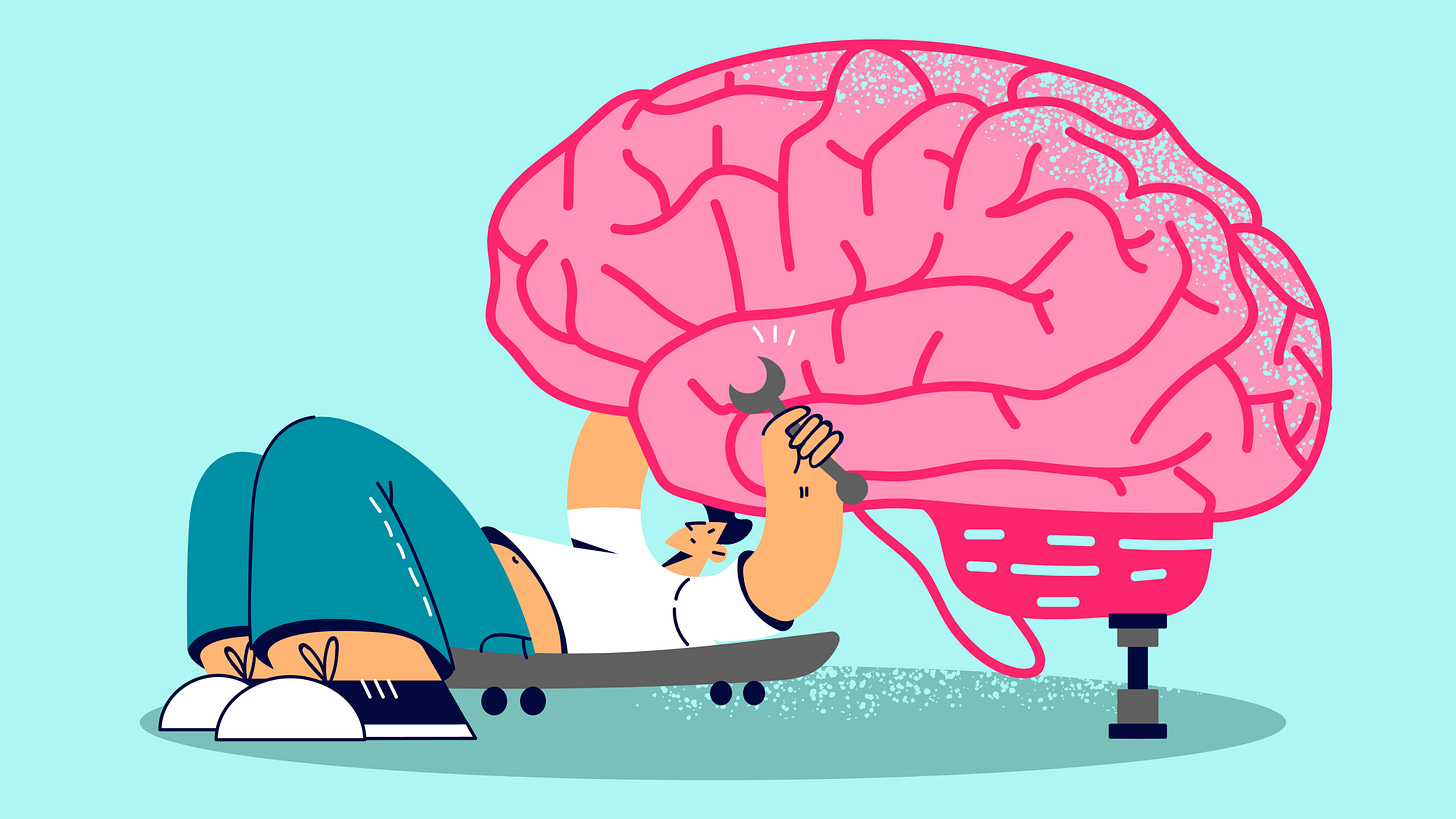Rewiring
Getting in your head
How different are you now compared to last year? That’s one question the Jewish tradition takes seriously, especially at this time of the year as we prepare for the transition from one year to another. The self-work that is required in Judaism is not something to be taken lightly, and yet I feel like it is.
For many Jewish people, we’ve become accustomed to heading into services on Rosh Hashanah and Yom Kippur, reading the machzor, expecting for some instant fix, and then moving on with our lives, but that’s not what the intention is behind the season.
Teshuvah, one of the major themes of the season, often translated as repentance, is better understood as a return. How we define that return is key to unlocking a more potent understanding of what’s possible within each of us.
The Piacezna Rebbe, Kalonymus Kalman Shapira, who is always best understand through the prism of his lived experience as the de facto Rabbi of the Warsaw Ghetto has a powerful reflection on the power of Teshuvah1:
There are two types of return. During the year, we’re constantly in a state of action and in those actions we make mistakes and hopefully engage in the process of righting those wrongs. Rosh Hashanah has a different force of return. On Rosh Hashanah, we are actually returning to the essence of who we are and who we ought to be. In doing so, we can reveal parts of ourselves that are normally concealed to us and those around us. When we do this, we can tap into the truest parts of ourself.
It’s a powerful reflection on what’s really possible this time of year and in truth, what each of us are capable of. There is change and then there’s Change. It’s not so much about actions external to us but something deeply internal.
I’ve been thinking a lot about neuroplasticity lately, the ability of our brains to learn new things. Science had long thought that the ability of our brain to learn new stuff stops at a certain age but now, it seems, we still retain some aspect of neuroplasticity as we age. It might not fire in the same way and undoubtedly, our brains shrink, but we still are able to change its wiring.
There’s a connection there to the Teshuvah of the high holiday season. Each year we come back to those same prayers and go through the motions. Oh, yep, I tell myself, I have fallen prey to those same interpersonal foibles that I always think about this time of year. But the Machzor isn’t meant to be an ossified set of behaviors that we succumb to year in, year out. It’s meant to supercharge us. Reminding ourselves that we have the power to manifest that type of Teshuvah, a return to my best self is the work I must do.
One method to get there comes from another thinker, Reb Nosson of Nemirov, the chief disciple of the great Rebbe Nachman who wrote the following in his work2:
By judging oneself favorably and finding still more good points inside herself, even though she has done what she has done and blemished what she has blemished, a person genuinely crosses over from the side of guilt to the side of merit. And through this, she can merit to do Teshuvah. After finding your good points and feeling close to God, it is easy to do Teshuvah.
Now, I am not sure I fully agree with that last clause but I do think the work becomes easier when we can do what Reb Nosson is detailing. Namely, there is so much negative self-talk that people think is elemental to this season. Admittedly, that pesky machzor aids in this. We sinned by fill-in-the-blank; strike your chest hundreds of times. That is important, and it’s vital to not become consumed by that part of the work. To balance it out, we also have to find our nekudot tovot, the good points.
I would argue that one of those points is that we have the capacity to shift who we are. Not just in a surface level way by changing an action or two, although that’s important as well. But we can actually remind ourselves that we can totally recalibrate how we think and how we talk. By doing so, we can activate ourselves in the world in a more holistic and impactful manner. That way, when next year we’re asking the question, how am I different this year, we can answer with a great sense of pride in our growth as humans.
Sending wishes for a joyous Rosh Hashanah! May the year ahead be filled with deep meaning, good health, and a return for all of us in need.
Derech Ha’melech Rosh Hashanah 6
Likutei Halachot Orach Chaim 1:1 6:


Good thoughts, as always! A happy new year to me means becoming a better human being each year, and trying to bring more happiness to others. Being more aware, and doing a better job of being kind.
Change is always possible if one emotionally and mentally equipped. Wishing you, and your precious family a sweet year! Chag S’meach! Shabbat Shakom! And, always, hugs and love! ✡️❤️Zeta